5. Marriage Story
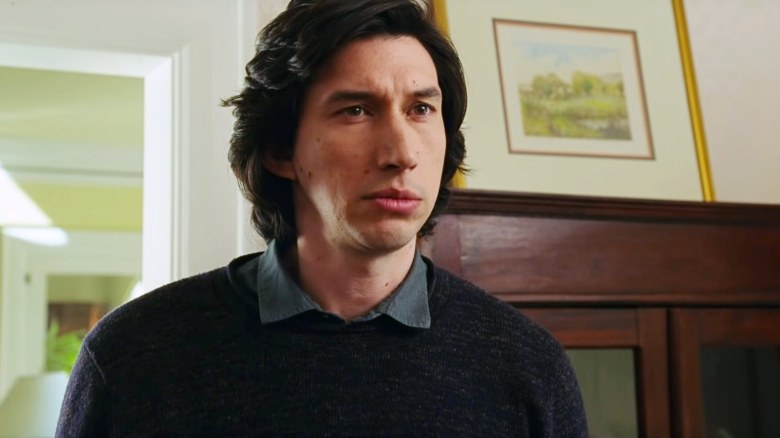
Noah Bambauch’s latest drama (along with 2005’s “The Squid and the Whale”) may be his most personal. The film deals with actor-theatre director romantic couple Nicole and Charlie Barber and their complicated process of falling out of love, resulting in the infamous d-word: divorce. The process is complicated and affects everyone involved, from the scared, confused child to the divorce attorneys.
The dialogue and little personal details between the two leads are enjoyable, nuanced, and realistic, and the side characters’ dynamics are treated equally with as much care. Divorce attorney Nora Fanshaw (Laura Dern) might be the film’s absolute showstopper – every line she delivers is packed to the punch with connivery, commentary, and humor, and her tangent on religion creating the misogynist patriarchy we see in America today is the film at its most brilliant. The fun banter between Charlie and his in-laws are on the opposite end of the emotional spectrum, touching in a natural, earned way.
While some criticize Bambuach from drawing from his personal experiences of his own divorce with actress Jennifer Jason Leigh, this is what arguably powers the film. “Marriage Story” is an experience where one gazes through the world directly through another’s eyes. It isn’t a narcissistic exercise at all. Charlie, the director (a sort of avatar for Bambauch) isn’t framed as the hero of this story, and neither is Nicole. They have as many weaknesses as they do strengths. The divorce is framed as nobody’s fault. Human nature and relationships are labyrinths that are too complex for individuals to navigate. People are unsolvable, but it’s clear they ultimately change, adapt, and love.
4. The Lighthouse
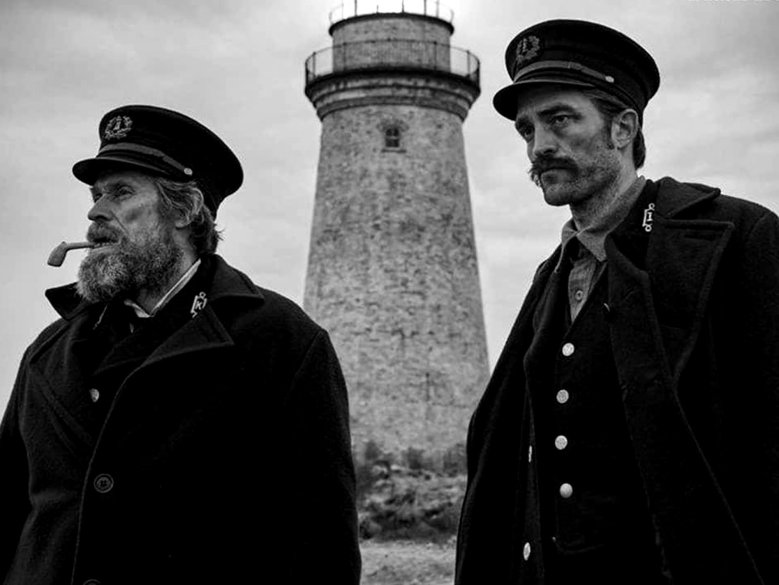
The cream of this year’s fine A24 crop, “The Lighthouse” exceeded all expectations thrown at it this year. It’s definitely the weirdest story A24 has ever distributed. Inspired by the unfinished Edgar Allen Poe story “The Light-House,” Robert and Max Egger’s screenplay grew into a beast that was more magnificent, strange, and surreal.
The story follows two lighthouse keepers who begin to lose their sanity in their isolation. The odd, stilted dialogue adds to the film’s atmospheric, creepy story. It’s not a movie for the faint of heart, but the themes of isolation, imagination, and repressed sexual desires will affect you deeply when watching it over in the years to come.
3. Booksmart
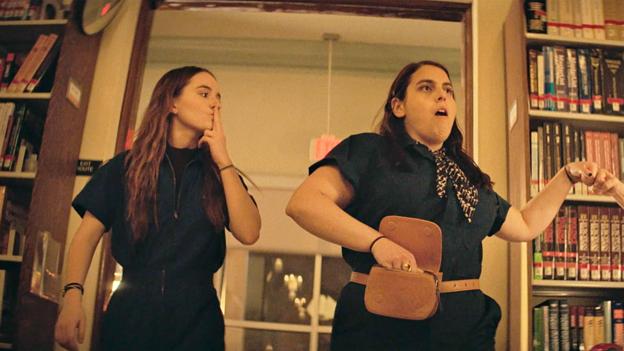
You don’t need to be booksmart to enjoy “Booksmart,” but Olivia Wilde sure needed to be! With a total of four screenwriters (Emily Halpern, Sarah Haskins, Sussana Fogel, Katie Silberman) while being Wilde’s first feature film, it’s a testament to this film’s story that it topped the numerous fantastical screenplays this year had to offer. It’s a coming-of-age comedy that tells the tale of two academic overachievers who regret being so academically focused and wished that they partied more, because many people who partied in high school end up going to the same top-tier colleges as them. Because of this, they decide to spend the eve of graduation partying, and traditional teenage chaos (drugs, sex, parties) ensues, with Wilde subverting expectations for each classic high school scenario.
What separates this from other coming-of-age comedies is the witty, hilarious dialogue shared by Amy and Molly, and their inspiring relationship. In a time where high school students are competing so badly to get into expensive, high ranking colleges, it’s good to see a movie that encourages kids to ease on the brakes and have a little fun. High school experiences simultaneously do and don’t matter. It’s just life.
2. The Farewell
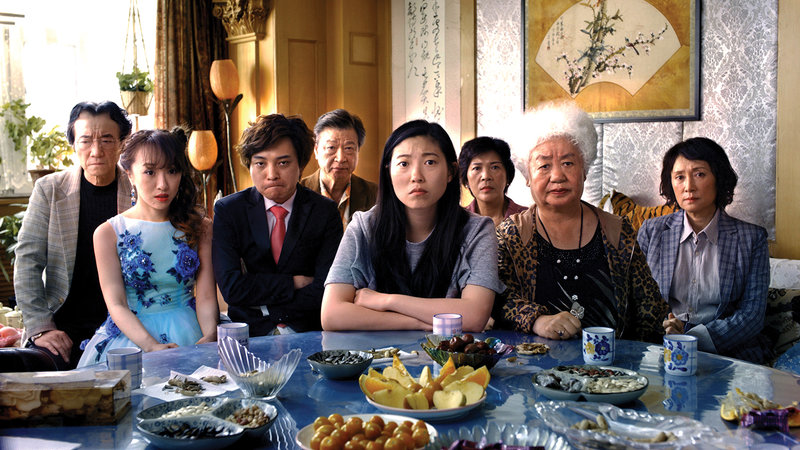
“The Farewell” is a tragicomedy about Asian-American New Yorker Bili Wang and her return to China in which she must keep a secret from her beloved grandmother, Nai Nai (the Chinese title for grandmother). The secret? That her Nai Nai is dying from cancer.
Directed and written by Lulu Wang and based on her real-life experiences, “The Farewell” is only her second feature, but still comes out on top as a masterpiece, perfectly balancing its quirky and somber tones. Bili’s parents go back to China for a fake staged wedding so that the whole Wang family may celebrate with Nai Nai for one last time. Bili returns as well (against her parent’s will) and she struggles with her ability to keep the lie. She wants so desperately to tell her grandmother she is dying, but can’t since it’s against the rest of the Wang’s family will. Why burden an individual with the inevitable fact of death?
The most masterfully written parts of the film are the Wang family’s tense arguments when filtered through Bili’s confused, Americanized eyes, which climaxes with a powerful monologue from her Uncle Haibin, where he laments to her of the West’s individualism and the East’s collectivism. Through this conflict, the film is able to explore themes of identity, family, and Eastern vs. Western culture, exploring the faults in both worlds.
1. Parasite
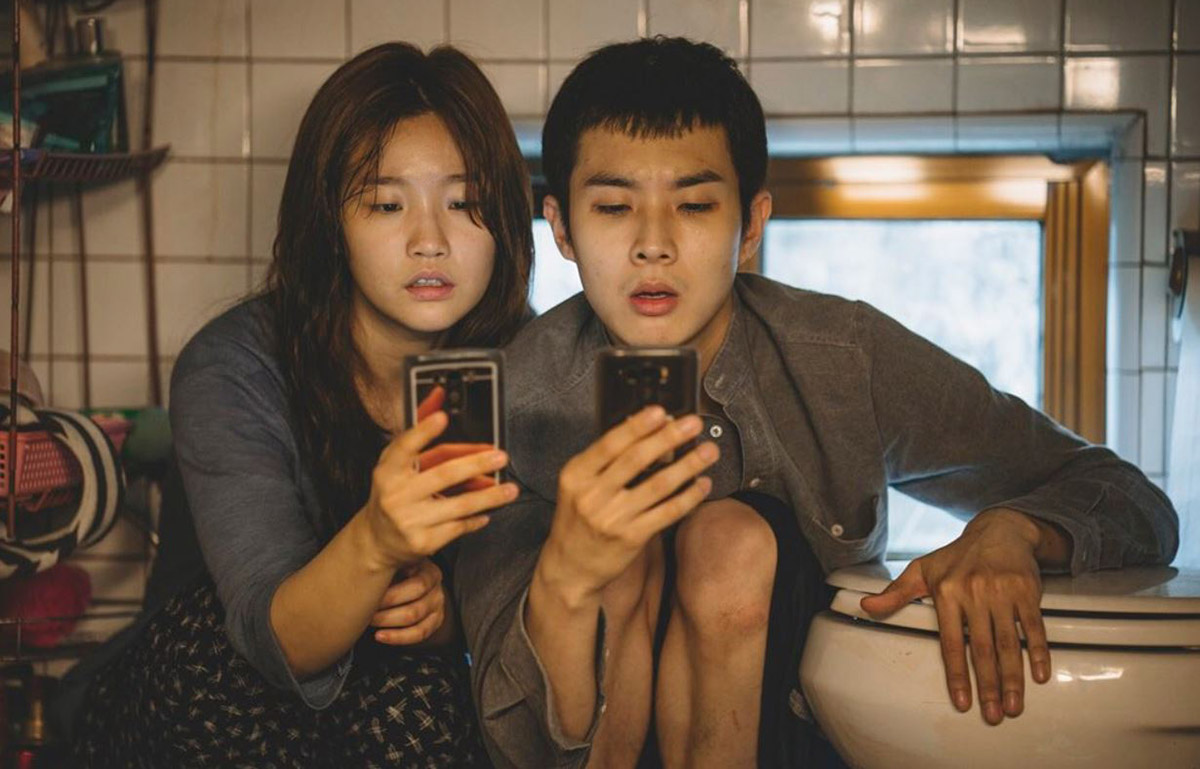
“Parasite” trumps every other film on this list! Director Bong Joon-ho is a god of cinema and one of the greatest auteurs working today – if not the greatest. One can never really tell where a Bong Joon-ho joint is going to go, and he outdoes himself in his most fantastic film to date – his 2019 magnum opus “Parasite,” the most original movie of this year from every angle. It’s best to watch this movie going in blind, without even watching trailers, so if you haven’t seen it yet, stop right now. You know what you have to do.
Written by Bong and Han Jin-won, “Parasite” at its essence is a story of the disparity between the rich and the poor and the consequences of this separation. It’s a South Korean critique of capitalism while being a celebration of family. It tells a story of the Kim and Park family: the poor Kim family can’t find jobs, so they con their way into having jobs at the rich Park household. Twists turn and mysteries unravel, and the Kim and Park family are both revealed to be parasites.
The Kims feed the Park family for money, food, material goods, etc, and the Parks feed off the Kim’s labor. But when both are put into a fight or flight response, they are both the same, fending for their families. Every moment in “Parasite” is masterfully written and executed, every element serving its overarching themes. The symbols it presents will survive cinema history forever. In a world run by money, can anyone or anything truly be genuine?